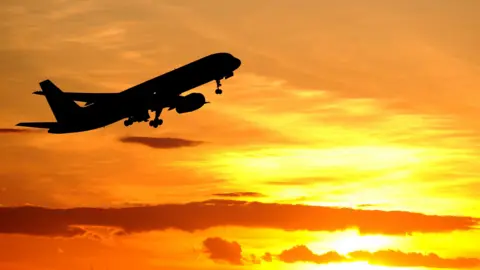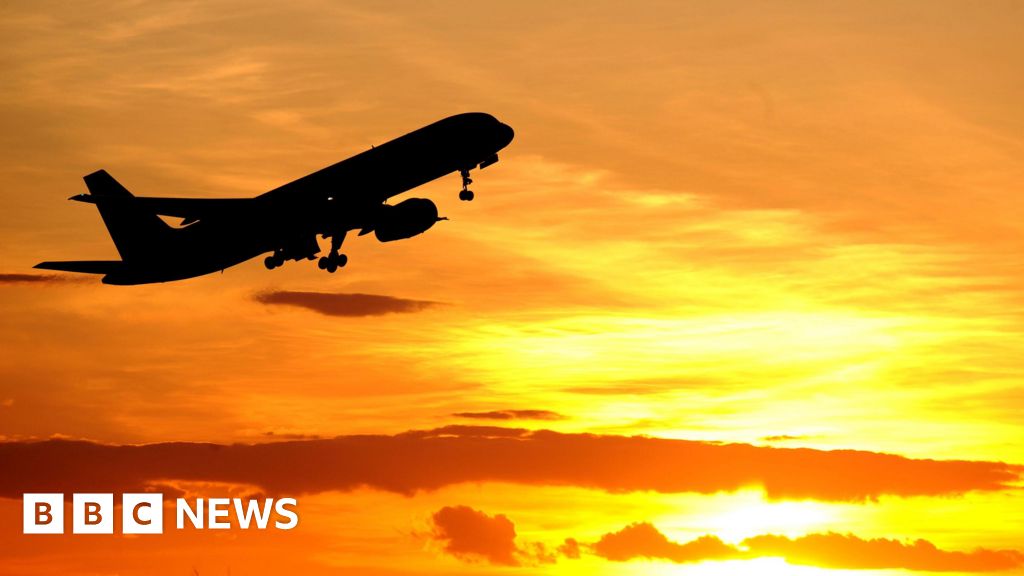 PA
PAI am heading to the airport to report on the new prime minister’s first foreign trip in the job.
It is now a familiar journey for me: to a private airport terminal, to clamber aboard the government plane with a union flag-painted tail fin and United Kingdom written down the side.
What is it like travelling abroad with a prime minister? You can read my take on that here.
Later on, Sir Keir Starmer will make this journey for the first time.
All us reporters sit at the back of the plane. Down at the other end, there is the prime minister, his advisers and assorted civil servants.
That bit doesn’t change.
In just over two years of going on trips like this as BBC political editor, the thing that has changed is the prime minister I have travelled with.
Sir Keir is number four, after Boris Johnson, Liz Truss and Rishi Sunak.
To put that into context, I was born in 1980 and I was 27 by the time I reached the fourth prime minister of my lifetime.
And what a change all this is for Sir Keir.
A week ago, I was interviewing him on the yellow plastic chairs of Hucknall Town FC in Nottinghamshire, the election campaign still in full swing.
Well, politics comes at you fast when you are a winner. Today, he has an invite to the White House from President Biden.
Sir Keir is flying to Washington for the annual meeting of the Nato defence alliance.
There are some things as prime minister you can choose when to schedule.
And there are some things, like international summits, which you can’t.
The fog of campaign trail exhaustion probably not yet properly slept off (if this reporter’s experience is anything to go by), how about crossing the Atlantic twice in 72 hours and a spot of jet lag on the side?
Sir Keir has met some of his fellow leaders whose countries are Nato members before, including President Emmanuel Macron of France and the German Chancellor Olaf Scholz.
But he has never met President Biden before nor, for instance, the Italian Prime Minister Giorgia Meloni.
 EPA
EPAThis summit means within his first week in the job he will have met the leaders of most of the UK’s most important allies – vital, as other governments grapple with how the new UK government might operate and what its priorities might be.
It might also fast forward the sense of normality around a new government, that always takes a little while to take hold as people adjust to the fact there are different people in the most powerful political offices in the land.
There is nothing like photographs of Keir Starmer with President Biden and plenty of others to emphasise that point.
First, though, a conversation with us lot, the travelling press pack, on the plane.
It is known as ‘the huddle’, when a prime minister comes to sit among the reporters, and we all get to ask him a question.
We journalists get together in advance to decide what questions we want to ask, who wants to ask which ones and in what order.
The huddle often goes on for half an hour or so, and amounts to a group interview.
It is, to use the jargon, on the record – so we can quote what the prime minister has said verbatim.
But given it is quite noisy, and often a little bumpy, at 30,000-odd feet up in the air, it is not filmed.
I will bring you what the prime minister, on his first trip, had to say to us, later on.



